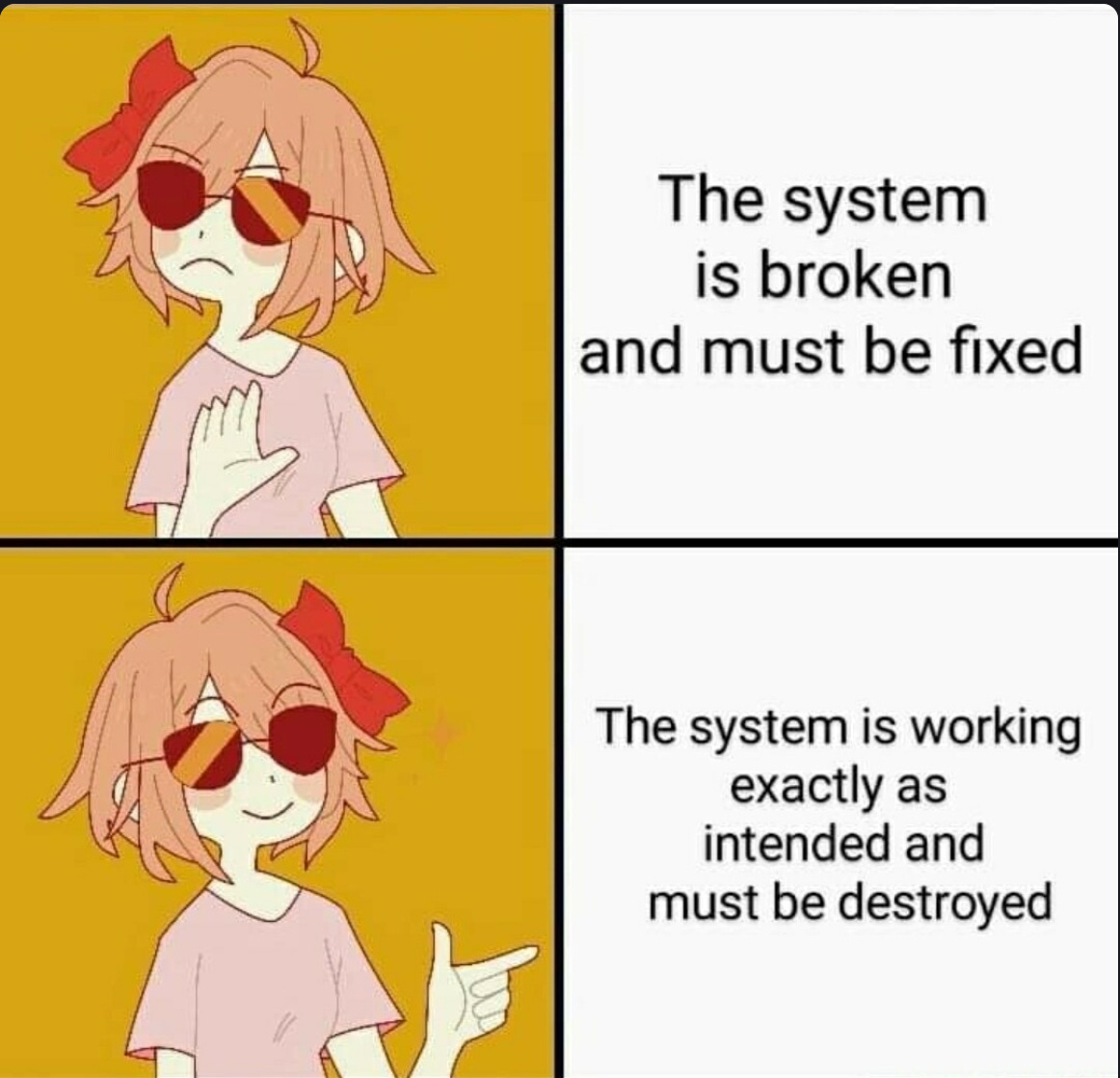Hello friends.

I am a journalist by trade and training, so when I'm faced with a tricky situation, my instinct is to gather different points of view. In the last few months, I've been lucky enough to be in conversation with the following people:
A top NYC mayoral candidate; a progressive former member of Congress; several leaders of activist/organizing/advocacy groups with national profiles, in climate, LGBTQ rights, caregiving issues; a hotshot lawyer at a top firm that represented Hillary Clinton; my friend Katherine, who wrote one of the smartest books out there about the Christian nationalists (she calls them “reactionary nihilists”) who have taken over the government; a fearless human rights activist from West Africa who was personally mentored by Nelson Mandela; a fired federal employee and another one whose job is on the chopping block; leadership coaches, policy experts, academics galore. Smart people. People of purpose.
Each time I’ve wanted to know: What do you make of what's happening? What is your plan? What should we do?
And I can tell you this:
No one knows what to do right now. No one.
Oh, people have plans. They have ideas. They often have a sense of purpose from moment to moment. And priorities, typically in this order:
Protect themselves and the people closest to them.
Protect their livelihood if possible. This includes going to work and doing our little job tasks.
Protect mental health, focus on what you can control.
Respond to the clear and present threats and resist.
About that last one. People are resisting, in large numbers even. But, I have to say, it’s usually only insofar as it fits in around what they're already up to. People, for the most part, at this point, are treating protesting like a fully optional quirky hobby they’d like to get more into, like axe throwing.
Or else, and I've heard this a lot, they're rebranding what they already like to do as #resistance, such as hosting political fundraisers or karaoke parties or writing workshops or panel discussions. (These are all too real examples).
I'm feeling very frustrated with myself and most everyone else for being seemingly unable to snap out of the trance of everydayness. Our status quo bias, our loss aversion, goes so deep.
Worse than that, I talk to so many people who are actively limiting the information they take in, to the point that they are missing big chunks of our slide into authoritarianism: the disappearances, the folding up of institutions like universities and law firms, the demise of the rule of law, the grinding to a stop of basic social services, the abandonment of environmental regulations, the new attack on voting rights.
The right is misinformed. The left and the center are intentionally ill-informed.
On the other hand, it's not like being relatively well-informed is making me more effective, vs. simply more stressed. Like I said, I don't know what to do.
But at the cost of some sleep, I have puzzled out this much. There are good reasons we are so confused and overwhelmed. What is happening is in some ways familiar, and in other ways totally new.
What’s new: the fully automated autogolpe. In other words, the hijacking of computer systems to quickly fire people and deny payments allocated by Congress; the crude deployment of search-and-replace for functions of search-and-destroy; the idiotic desire to somehow try to use AI to replace basic functions of government, as described in this Wired story.
What’s also new: The United States is the keystone of an entire world order. So its fall into authoritarianism has major global repercussions. I really recommend listening to or reading this entire interview with Fiona Hill, Russia scholar and a senior director of the National Security Council in Trump’s first term. She says:
This is the end of Pax Americana. The United States is heading off in God knows what kind of direction, all fast and furious, rupturing relationships, economic, trade, political, military, left, right and center. And I don’t think any of us know where it’s going to be in the future.
The phrase Pax Americana suggests a comparison to the fall of the Roman Empire. But that was a very long time ago. The nation-state was not as well established, the economy wasn’t as globally connected, there was no climate and extinction crisis threatening the basis of our shared survival and prosperity, and there were no nuclear weapons.
What’s familiar: the rest of the autocratic playbook.
I've been looking at overseas examples since Trump was reelected, so this post from The Bulwark struck me as basically correct.
We must stop viewing political life through the lens of American politics as we have known it, and adopt the viewpoint of dissident movements in autocratic states.
What does that imply?
First of all, either you are actively resisting or you are serving the regime. There is no middle ground and no neutral parties. Everything is political now. (Maybe that means your karaoke party is more relevant/effective than I realized, insofar as you are celebrating queer art, building community and social ties, relieving stress. I apologize).
Second, it makes sense to me that we are now building toward a mass mobilization ahead of the 2026 midterms—where MANY MANY people take to the streets, persistently, and resist in other creative ways, to push Trump-Musk out and to preserve our right to free and fair elections.
If the authoritarians can be stopped then the Democratic party will be the vehicle through which people wield power. But the Democratic party, as an institution, is too weak and desiccated to stage a real fight against Trumpism. It will have to be pushed into fighting by a mass popular movement.
No institution is going to do this for us, it's going to be us. And that us is broad enough that it will include lots of people who don't agree on much else. It needs to be so big that Trump loses his nerve and is afraid to fire guns at it, to be blunt. It should include me and you.
It’s a huge effort, with no guarantee of success, and it’s only a first step. Because part of how we got here are that systems are broken, and merely putting them back into place ain’t it.
To sum up: I don't know exactly what to do. I’ve asked around a bit and I don't think anyone knows what to do. It's overwhelmingly obvious that the perpetrators in power have no idea what they are doing.
There is a modicum of possibility buried, like a pearl, in that black hole of uncertainty, and I want to allow for the chance that something genuinely new and better may appear on the other side of this.
But I also think we need to snap out of it and start preparing for victory.
I understand people have their everyday duties, bills to pay, and a need to disconnect. My husband and I are currently four seasons in to our binge-watching of The Good Wife.
But it's not plausible to me to think we are gonna get out of this if everyone tries to also stay in their comfort zone the whole time.
What do you think? What are you doing? What are you willing to do?








In order to resist, and to get out of my comfort zone, I've been stepping into my physical community more. For many years I have stayed in, read books, watched movies, and chatted with people online more than I have gone out, taken in live entertainment, and enjoyed face-to-face conversations. Obviously, certain external obstacles have exacerbated this inclination, but my introverted nature was already primed to take this path as I grow further into adulthood.
I regularly attended Parent/Teacher Club meetings when my oldest entered Kindergarten, but I stayed naturally silent and I never felt that I was contributing anything of value. When COVID began, the meeting went online and I didn't think they needed me or I needed them, so I stopped attending, even when in-person meetings began again. Now, my oldest is in 6th grade and I feel it is my duty to contribute what I can, even if it's just an extra (silent) face.
Like most people, I detest uncertainty. Before I commit, I want to know what the exact situation will be, how my donation will be spent, or, at the very least, who will be there. I constantly need to remind myself that certainty prior to action is rare, if not entirely impossible, and I must step up, dive in, and navigate the risks anyway.
Thank you for your thoughts and writings. They are a wonderful reinforcement during these times of uncertain decisions.
I think the "not knowing" is a good place to be for a bit. I've done a couple Tesla protests knowing full well that it won't be nearly enough, but it's helping me build some muscle for what I think might be coming next. (Always good to be around a few hundred pissed off compatriots!)
What is frustrating and what I'm kinda waiting for (though maybe I shouldn't be) is some focus and coherence in whatever "movement" this is. In a lot of those town halls with Dems, people are like "Tell me where and when and I'll show up to fight." I think there are lots of folks who want to do something but who also want to be led. Who will be the catalyst, the MLK so to speak to clarify the message that we can coalesce around and start a real resistance? (It definitely will not be our institutions.)
I'm good with getting uncomfortable. But random discomfort won't turn the tide. So, yeah, I'm "not knowing" right now too. But I'm hoping to "know" what to do more clearly sooner rather than later.